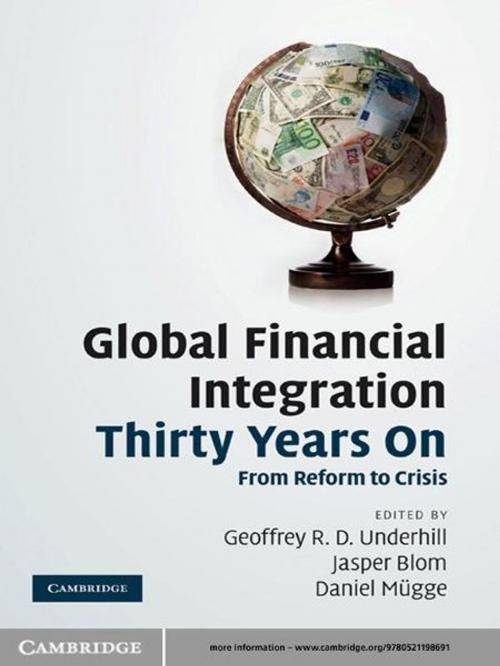Global Financial Integration Thirty Years On
From Reform to Crisis
Nonfiction, Social & Cultural Studies, Political Science, International, International Relations, Business & Finance| Author: | ISBN: | 9780511849138 | |
| Publisher: | Cambridge University Press | Publication: | September 2, 2010 |
| Imprint: | Cambridge University Press | Language: | English |
| Author: | |
| ISBN: | 9780511849138 |
| Publisher: | Cambridge University Press |
| Publication: | September 2, 2010 |
| Imprint: | Cambridge University Press |
| Language: | English |
Early in the new millennium it appeared that a long period of financial crisis had come to an end, but the world now faces renewed and greater turmoil. This 2010 volume analyses the past three decades of global financial integration and governance and the recent collapse into crisis, offering a coherent and policy-relevant overview. State-of-the-art research from an interdisciplinary group of scholars illuminates the economic, political and social issues at the heart of devising an effective and legitimate financial system for the future. The chapters offer debate around a series of core themes which probe the ties between public and private actors and their consequences for outcomes for both developed markets and developing countries alike. The contributors argue that developing effective, legitimate financial governance requires enhancing public versus private authority through broader stakeholder representation, ensuring more acceptable policy outcomes.
Early in the new millennium it appeared that a long period of financial crisis had come to an end, but the world now faces renewed and greater turmoil. This 2010 volume analyses the past three decades of global financial integration and governance and the recent collapse into crisis, offering a coherent and policy-relevant overview. State-of-the-art research from an interdisciplinary group of scholars illuminates the economic, political and social issues at the heart of devising an effective and legitimate financial system for the future. The chapters offer debate around a series of core themes which probe the ties between public and private actors and their consequences for outcomes for both developed markets and developing countries alike. The contributors argue that developing effective, legitimate financial governance requires enhancing public versus private authority through broader stakeholder representation, ensuring more acceptable policy outcomes.















